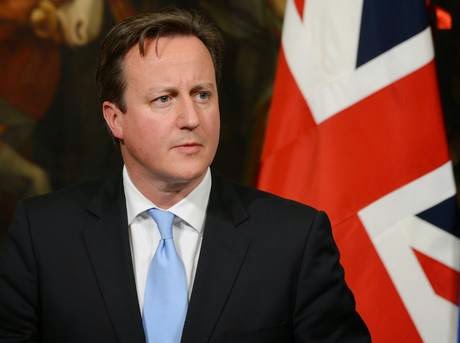The fine neo-classical Church of All Saints at Hassop.
Members and guests of the Military and Hospitaller Order of St Lazarus of Jerusalem met in Derbyshire just recently for a Vigil Service followed by Dinner and for the Investiture of new members and a lunch.
As you can see from the photos we have a very pleasant time of it, as our fraternity is most convivial. While all that is, of course, enormous fun, it is the opportunity to live out some part of our Christian lives in a way that is both joyful and enables us to act in charity to those in need. So far this year the Grand Priory of Great Britain has given £21,000 to Cardinal Ranjith's charity in Sri Lanka to assist those affected by leprosy. SUROL aims to help those affected by leprosy to re-integrate into their communities and life a self-sustaining life once again.
The beautiful warm weather called for a hat to suit the occasion!
Pictured here with my great friend, Jennifer Brave, author of such diverse publications as "Law for Retailers" and a biography of Venerable Margaret Sinclair.
The Vigil Service was followed by a delightful Reception in the garden of Hassop Hall, just next door to the church. Here, members Cons. Anne Sterland and Col. Julian Tyson Woodcock.
With our Treasurer, Chev. Nigel Sterland and Grand Secretary to the International Council, Chev. Matthew Jackson in the gardens of Hassop Hall.
At a rather good Dinner in Hassop Hall, the Chancellor, Fr Mark Lawler with one of our new members Chev. Jonathan Battye, a teacher of History at Chavagnes International College.
We don't go in for too many speeches - toasts follow dinner but the Grand Prior did welcome our guests, including the Mayor of Erewash, His Worship Kewal Singh Athwal and his wife.
The Investiture took place at Bakewell Parish Church.
In the background you can see the Octavius Chamber Choir, who are based in Blackburn, Lancashire. They travelled down and provided excellent music at the Service. The music was conducted by Mr David Scott-Thomas, the Choir's Musical Director and the Organist was Mr Sam Hudson, the Organist and Director of Music at Blackburn Cathedral.
I was surprised to become a Grand Officer of Merit. A secret that had been well kept in preparation by fellow members.
We had a splendid lunch afterwards in Hassop Hall. Here with one of our guests, Coun. Mrs Carol Walker, Chairman of Derbyshire Dales District Council.
As I said - a splendid lunch at Hassop Hall.
It was the Manor and principal residence of the FOLJAMBES who remained until the reign of Richard II (1377-1399). The infant heiress to Hassop became a ward of the King. He sold her for 50 marks to Sir John Leake, who speedily made one hundred percent profit by re-selling her at a price of 100 marks to Sir William Plumpton, who wished to secure her as a wife for his son. The matrix for England was still that increasing power struggle between the Barons and the only real power was the possession of land.
The Foljambe heiress was eleven months old when her covenant of marriage was made, and her considerable dowry of Hassop with a dozen other Lordships and moieties in twenty townships passed to the PLUMPTON family.
At the close of the 15th century, they sold Hassop to Catherine, widow of Stephen Eyre. From 1498 at the time of the purchase, the Eyre family who were Roman Catholic and staunch Jacobeans moved into that testing period of religious persecution. Throughout the reign of Elizabeth I they suffered a great deal in consequence, emerging steadfast. They were among those few Catholic families of the nobility who did not switch sides as a temporary expedient. The Civil War in 1643 was another time of trial for the family, and Rowland Eyre turned his home into a Royalist garrison. It was the scene of several skirmishes and after the Parliamentary victory, the captured property was only redeemed at a cost of £21,000. Rowland's father had dismantled much of the old Hall and replaced it with the present one.
In 1814 Francis Eyre, a direct descendant of Stephen, succeeded to the title of Earl of Newburgh.
Born into an age when it was fashionable for Noblemen and their sons to follow the Byronic grand tour of Europe, Francis left his mark on the rapidly changing face of Britain with the unusual Catholic church built 1816-1818 in the severest Classical Revival style, its front resembling an Etruscan temple, the interior with a coved coffered ceiling - it has an underground passage to the Hall. Improvements to modernise the Hall and some alterations in the Neo-Classical mould were carried out a few years later. The estate passed to Dorothy, sister of Francis, in 1852, and a year afterwards to her widower, Colonel Charles LESLIE. The Hall bought from the Leslies in 1919 by Colonel H. K. STEPHENSON (later Sir Henry Stephenson Bt) eventually became the home of his son Sir Francis Bt and it was purchased by the present owners, the Chapman family, in 1975.
Hassop Hall is linked to only five families since the inventory of Domesday Book, there are remarkably intact records with specific dating of days and years.

.jpg)






















.jpeg)



